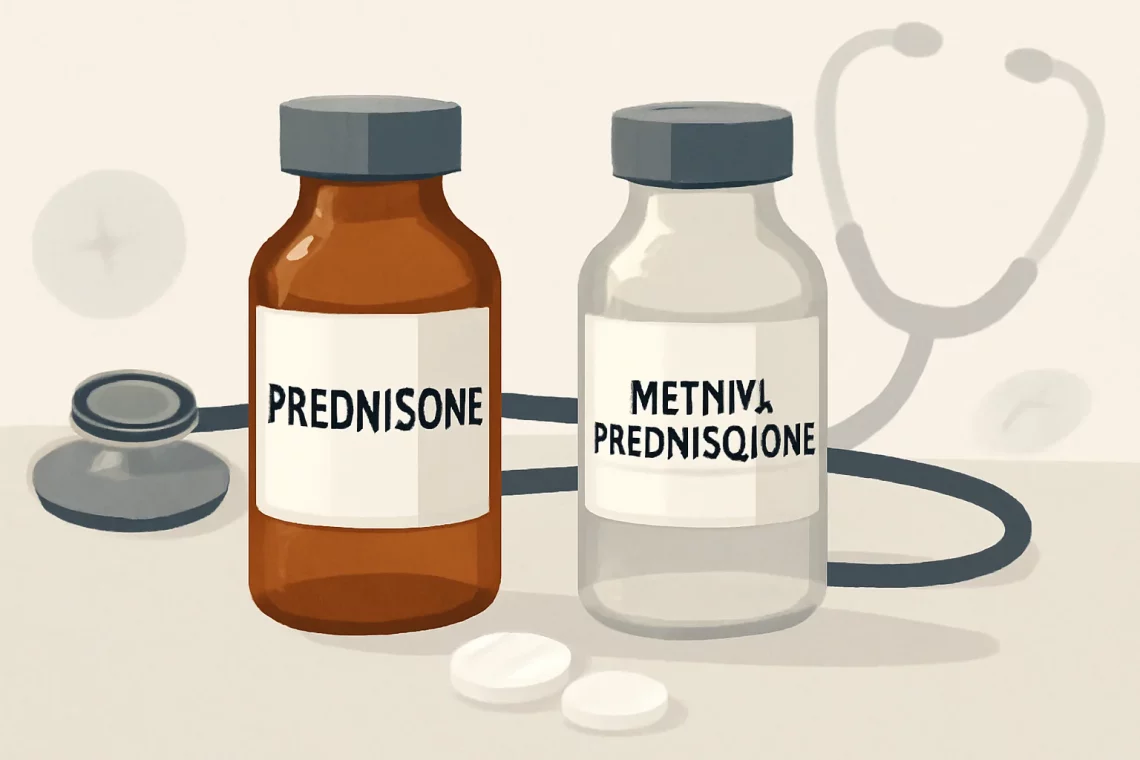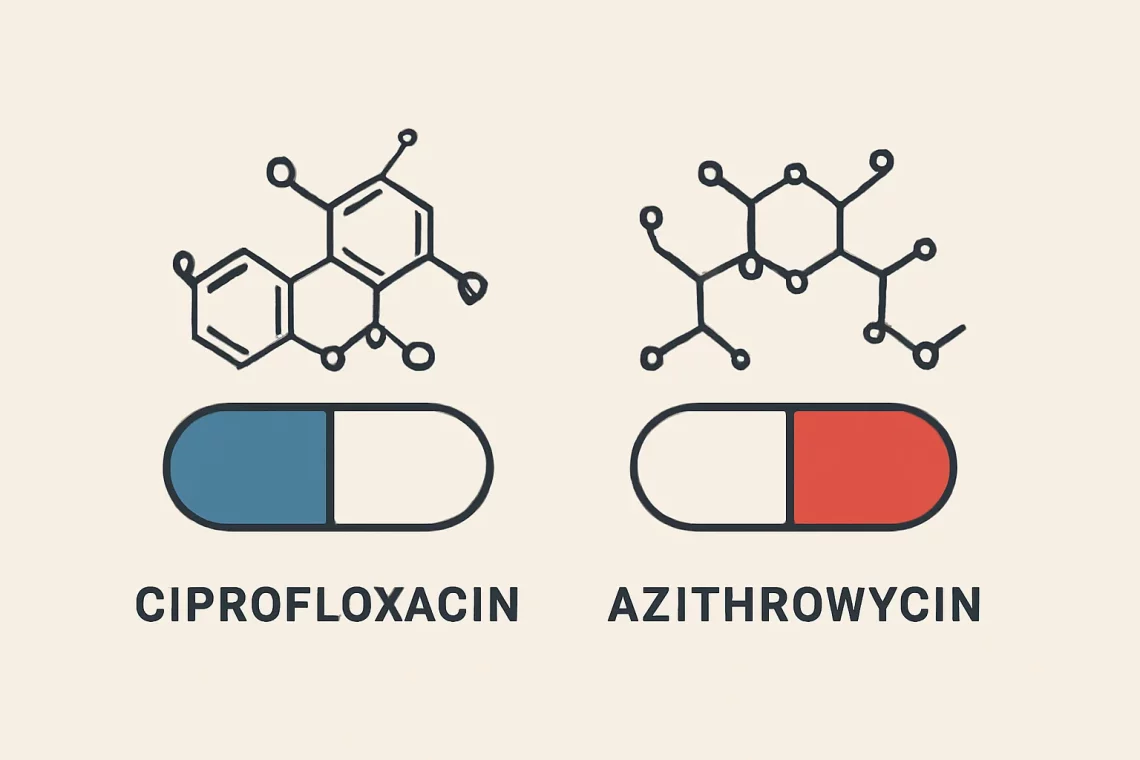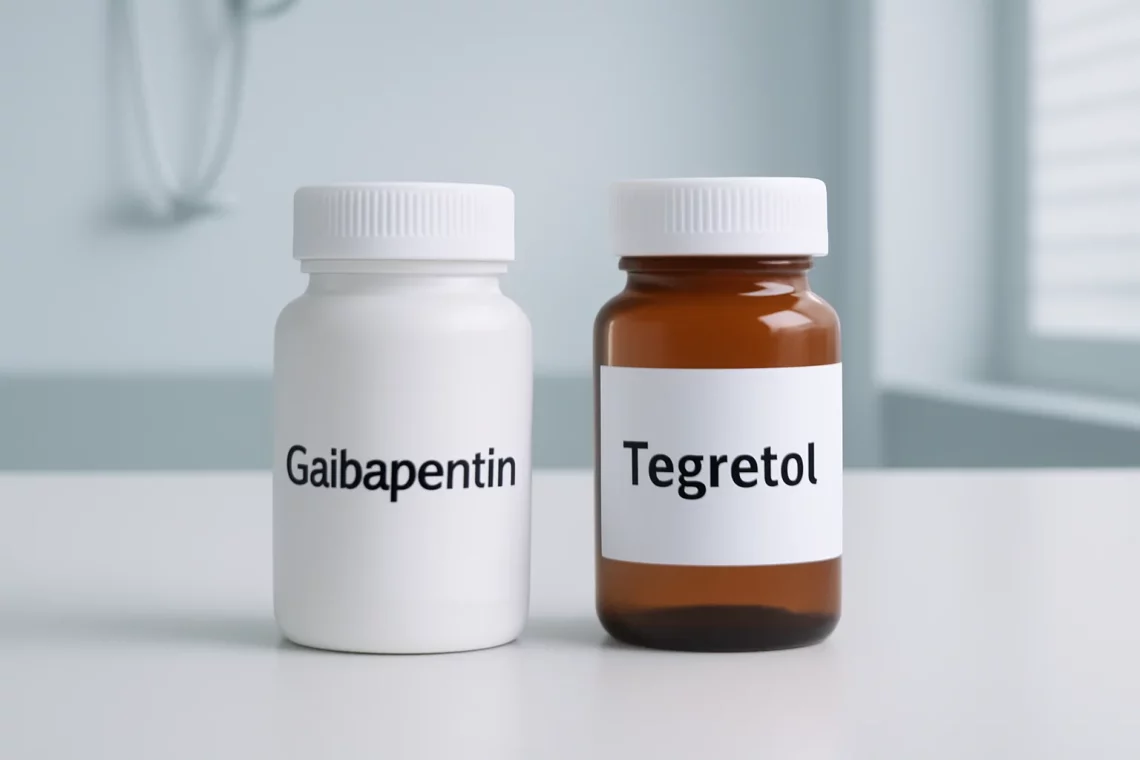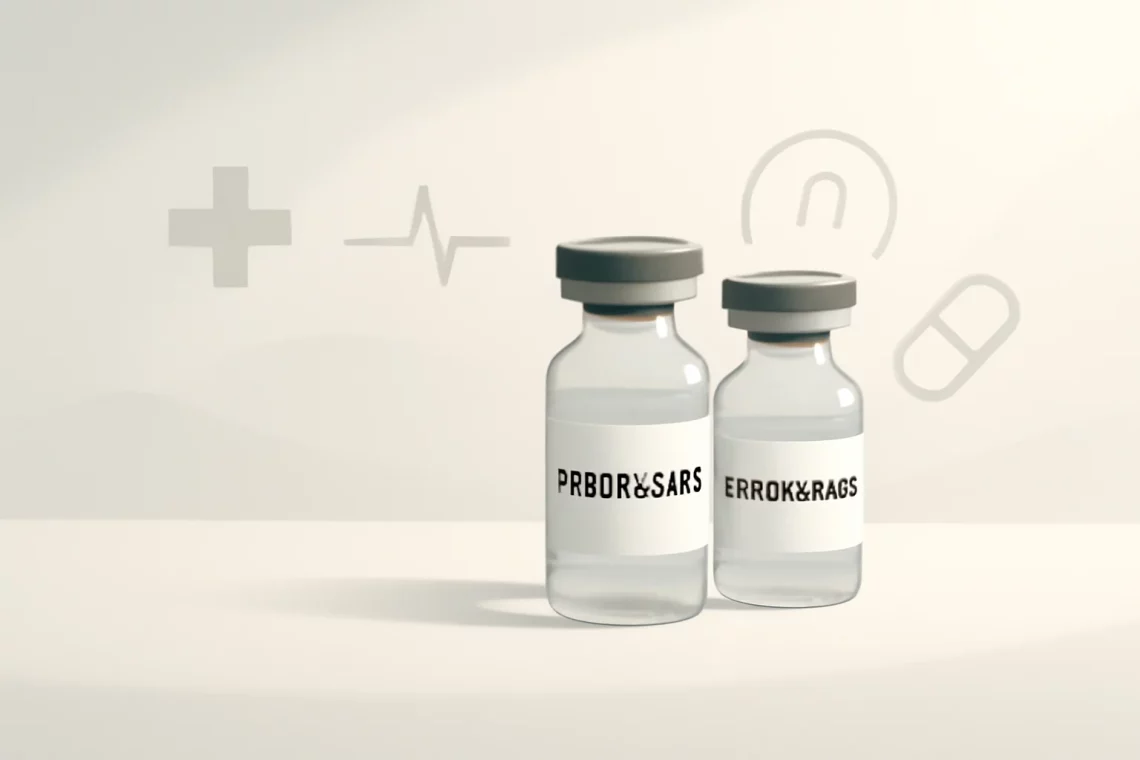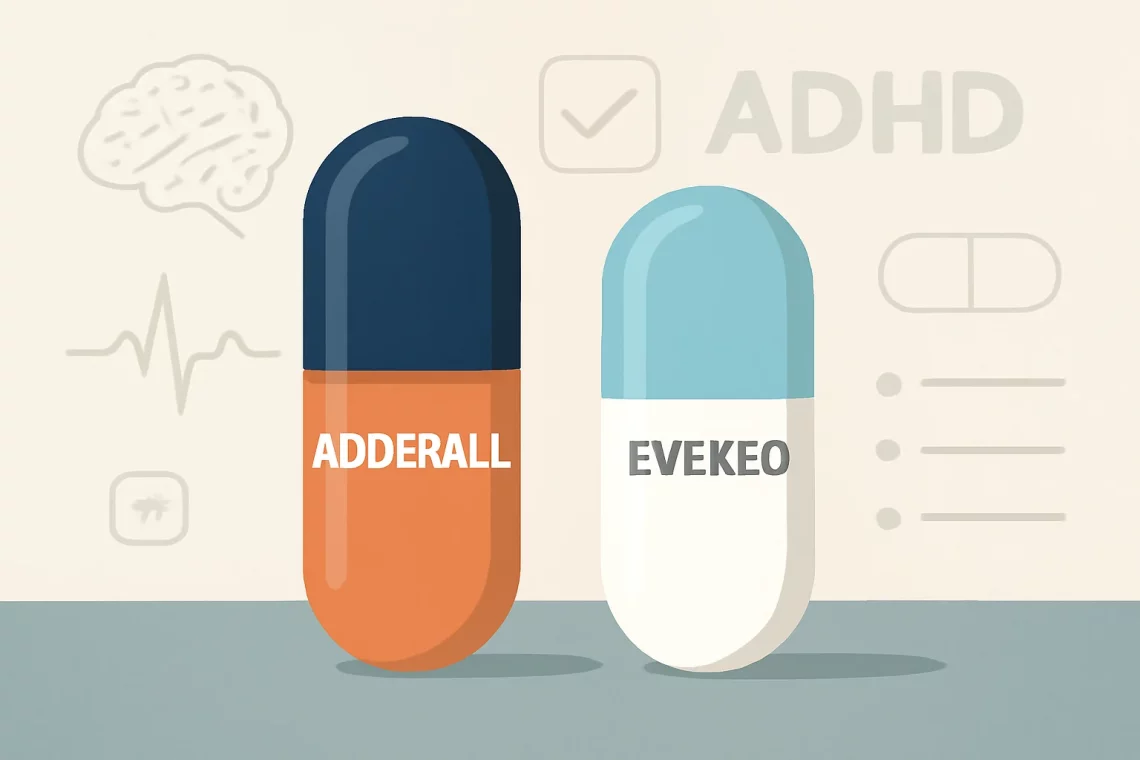-
Tramadol vs Diclofenac: Understanding Pain Relief Options
Tramadol and diclofenac are two commonly used medications that serve distinct purposes in pain management. While both drugs are effective in alleviating discomfort, their mechanisms of action, side effects, and appropriate usage differ significantly. Understanding these differences can help individuals make informed decisions about their pain management options. Tramadol is an opioid analgesic, which means it works on the central nervous system to alleviate pain. It is often prescribed for moderate to severe pain and can be used in various conditions, from post-surgical pain to chronic pain disorders. On the other hand, diclofenac is a non-steroidal anti-inflammatory drug (NSAID) that primarily reduces inflammation and alleviates pain related to conditions such…
-
Prednisone vs Methylprednisolone: Which Steroid Should You Choose?
Prednisone and methylprednisolone are both synthetic corticosteroids widely used in the medical field to treat a variety of conditions, ranging from inflammatory diseases to certain types of cancer. These medications are known for their ability to reduce inflammation and suppress the immune system, making them valuable tools in managing a range of health issues. Patients and healthcare providers often face the decision of choosing between these two medications, as each has its own unique properties, benefits, and potential side effects. The choice may depend on the specific health condition being treated, as well as individual patient factors such as age, overall health, and any other medications being taken. The use…
-
Prednisone vs Methylprednisolone: Which Is Right for You?
Prednisone and methylprednisolone are both corticosteroids that play a crucial role in the management of various inflammatory and autoimmune conditions. These medications are synthetic derivatives of cortisol, a hormone produced by the adrenal glands. They work by mimicking the effects of cortisol, thus helping to reduce inflammation, suppress the immune system, and alleviate symptoms related to a wide range of disorders, including allergies, asthma, rheumatoid arthritis, and certain skin conditions. While both medications share many similarities in their mechanism of action and therapeutic uses, they also have distinct differences that may influence a healthcare provider’s choice when prescribing treatment. Factors such as the severity of the condition, the patient’s overall…
-
Citalopram vs Cymbalta Which Antidepressant is Right for You
Citalopram and Cymbalta are two commonly prescribed medications that serve distinct purposes in the treatment of mental health conditions. Both medications are utilized to address various forms of depression and anxiety, but they belong to different drug classes and operate through unique mechanisms of action. Understanding the differences and similarities between these two medications can be crucial for patients and healthcare providers alike. As mental health issues continue to rise globally, effective treatments are essential for improving the quality of life for those affected. Citalopram, a selective serotonin reuptake inhibitor (SSRI), primarily targets serotonin levels in the brain to alleviate symptoms of depression and anxiety. On the other hand, Cymbalta,…
-
Cyclobenzaprine vs Soma: Understanding Their Differences and Uses
Cyclobenzaprine and Soma are two medications commonly used for muscle relaxation and pain relief. Both drugs have become popular choices for individuals seeking relief from musculoskeletal conditions, but they differ in composition, mechanism of action, and potential side effects. Understanding these differences is crucial for patients and healthcare providers when determining the most appropriate treatment option. While cyclobenzaprine is often prescribed for short-term relief of muscle spasms, Soma, or carisoprodol, has its unique characteristics that set it apart. As healthcare continues to evolve, more individuals are seeking non-invasive solutions for muscle pain and spasms, leading to an increase in the use of these medications. However, the road to recovery can…
-
Ciprofloxacin vs Azithromycin: Comparing Antibiotics for Infections
Ciprofloxacin and Azithromycin are two widely used antibiotics that belong to different classes of antimicrobial agents. Each drug has its unique mechanism of action, spectrum of activity, and clinical applications. Understanding the differences and similarities between these two medications is crucial for both healthcare professionals and patients alike. Ciprofloxacin, a fluoroquinolone antibiotic, is known for its broad-spectrum efficacy against a variety of bacterial infections. It works by inhibiting bacterial DNA gyrase and topoisomerase IV, enzymes that are essential for bacterial DNA replication, transcription, and repair. This action leads to the death of susceptible bacteria. Ciprofloxacin is often prescribed for respiratory, urinary tract, and skin infections, as well as specific gastrointestinal…
-
Gabapentin vs Tegretol: Key Differences and Uses Explained
Gabapentin and Tegretol are two medications commonly used in the management of neurological and psychiatric conditions. While both drugs serve important roles in treating various disorders, they belong to different classes of medications and function through distinct mechanisms. Gabapentin, often prescribed for its anticonvulsant properties, is primarily used to treat conditions like epilepsy and neuropathic pain. On the other hand, Tegretol, known generically as carbamazepine, is also an anticonvulsant but has a broader range of applications, including the treatment of bipolar disorder and certain types of nerve pain. The choice between Gabapentin and Tegretol can significantly impact patient outcomes, as each medication carries its own set of benefits and potential…
-
Prednisone vs Triamcinolone: Key Differences and Uses Explained
Prednisone and triamcinolone are both corticosteroids, widely used in the medical field to treat a variety of health conditions. These medications are synthetic derivatives of natural hormones produced by the adrenal glands, primarily responsible for regulating inflammation and immune responses in the body. While they share a common purpose in alleviating symptoms associated with inflammatory and autoimmune disorders, their specific applications, mechanisms of action, and side effects can differ significantly. The importance of understanding the differences between these two medications lies in their varying effectiveness for particular conditions, as well as their distinct side effect profiles. Patients and healthcare providers alike must navigate these differences to determine the most appropriate…
-
Ativan vs Seroquel: Comparing Uses, Benefits, and Side Effects
Ativan and Seroquel are two medications frequently prescribed for mental health conditions, each with distinct mechanisms of action and indications. Understanding the nuances of these drugs can be crucial for patients and healthcare providers alike. While both medications are utilized in the treatment of anxiety and mood disorders, they belong to different classes and have varying side effects, benefits, and risks. Ativan, generically known as lorazepam, is a benzodiazepine that primarily acts as an anxiolytic, providing rapid relief from anxiety symptoms. Seroquel, or quetiapine, is an atypical antipsychotic primarily used to manage conditions like schizophrenia and bipolar disorder. The differences in their pharmacological profiles can greatly influence treatment outcomes and…
-
Adderall vs Evekeo: A Comprehensive Comparison of ADHD Medications
Adderall and Evekeo are two medications primarily used to treat Attention Deficit Hyperactivity Disorder (ADHD) and narcolepsy. They both belong to the stimulant class of drugs and share similar mechanisms of action, but there are notable differences between them that can affect their efficacy, side effects, and overall patient experience. As the prevalence of ADHD and related disorders increases, understanding these medications becomes essential for patients, caregivers, and healthcare providers. The choice between Adderall and Evekeo can significantly impact an individual’s treatment journey. Factors such as dosage, formulation, and individual patient response can influence which medication is the most appropriate choice. Furthermore, both medications have distinct characteristics that can cater…




